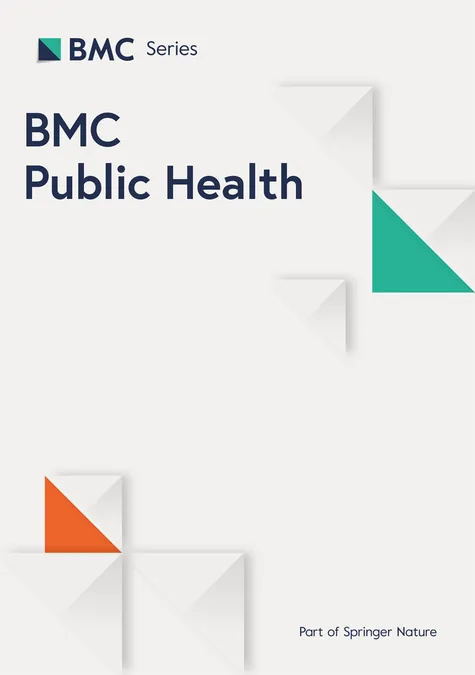
Uncovering the Obstacles to Iron and Folic Acid Supplementation for Pregnant Women in Botswana: A Crucial Public Health Issue
2024-12-04
Author: Sarah
Uncovering the Obstacles to Iron and Folic Acid Supplementation for Pregnant Women in Botswana: A Crucial Public Health Issue
Pregnant women around the world face a critical health challenge: iron and folate deficiency. This underreported crisis is not just a local issue but a significant global public health concern that affects approximately 37% of pregnant women worldwide. With low- and middle-income countries (LMICs) in Africa and Asia facing the most significant impacts, maternal anemia poses a serious risk, contributing to preterm births, low birth weights, and increased mortality for mothers and infants alike.
In Botswana, the prevalence of anemia among pregnant women has stagnated alarmingly at 31% from 2010 to 2019. While daily iron and folic acid (IFA) supplementation during pregnancy is an effective, low-cost intervention endorsed by the World Health Organization (WHO), the implementation in Botswana is riddled with challenges. Despite the existence of free antenatal care, many women are not receiving the life-saving nutrients they need before and during pregnancy.
A recent qualitative assessment highlights the multifaceted barriers to IFA supplementation in Botswana. A lack of access to these essential nutrients, inadequate supply, and limited education about micronutrient importance are major contributors to this ongoing issue. While the proportion of mothers receiving IFA has risen over the past decade, more than one-third still do not receive any formulation—even as availability plummeted during the COVID-19 pandemic.
To understand the local context better, researchers conducted face-to-face interviews with 20 pregnant women across two antenatal clinics in Botswana, revealing critical insights into their knowledge, barriers, and potential solutions regarding IFA supplementation.
Key Findings:
1. Limited Knowledge about Folic Acid: Despite women being aware of the importance of iron for their health and that of their babies, most lacked a clear understanding of folic acid’s benefits, including its role in preventing neural tube defects.
2. Widespread Unavailability: Access to IFA supplements remains alarmingly low. Many women shared experiences of clinics frequently running out of these essential vitamins, forcing them to seek private options. However, the prohibitive costs prevent many from affording these solutions.
3. Poverty and Food Insecurity: The high cost of nutritious food and supplements weighs heavily on expectant mothers. Many women express an interest in fortified foods, which could help alleviate vitamin deficiencies without further burdening their finances.
4. Barriers to Compliance: Side effects from supplements, such as nausea or constipation, often discourage consistent usage. Recommendations for tailored supplement regimens—like combined iron and folic acid tablets—could enhance adherence.
Potential Solutions:
- Improve Access: Hospitals must ensure consistent availability of IFA supplements. Engaging with community leaders could help identify and rectify supply chain issues that exacerbate these shortages.
- Enhance Education: Both healthcare providers and women need to engage in better conversation.
- Utilize Established Nutrition Programs: Increasing the provision of nutrient-rich foods, such as the commonly provided Tsabana—a mixture of sorghum and soya—could strengthen maternal nutrition.
- Community Support Systems: Family involvement in keeping mothers accountable for their supplementation regimens has proven beneficial. Programs encouraging backyard gardening could also boost local food security, making it easier for pregnant women to access fresh produce.
In conclusion, it is clear that the path to ensuring a healthy motherhood in Botswana runs directly through improved IFA supplementation. By understanding the barriers faced by pregnant women and innovating on community resources and education, stakeholder engagement can gradually transform the landscape of maternal health and significantly reduce the rates of anemia. Addressing these challenges not only safeguards the well-being of mothers but also paves the way for healthier future generations.
Catch the full story and uncover the hidden challenges facing expectant mothers in Botswana!





 Brasil (PT)
Brasil (PT)
 Canada (EN)
Canada (EN)
 Chile (ES)
Chile (ES)
 España (ES)
España (ES)
 France (FR)
France (FR)
 Hong Kong (EN)
Hong Kong (EN)
 Italia (IT)
Italia (IT)
 日本 (JA)
日本 (JA)
 Magyarország (HU)
Magyarország (HU)
 Norge (NO)
Norge (NO)
 Polska (PL)
Polska (PL)
 Schweiz (DE)
Schweiz (DE)
 Singapore (EN)
Singapore (EN)
 Sverige (SV)
Sverige (SV)
 Suomi (FI)
Suomi (FI)
 Türkiye (TR)
Türkiye (TR)